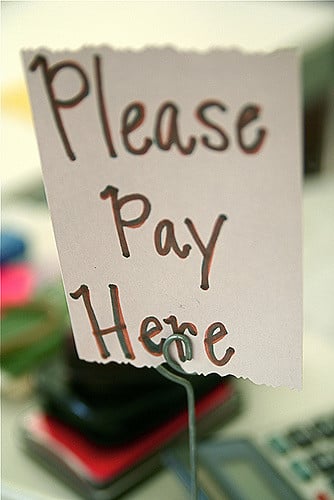Demanding Payment When a CA Lawyer Can’t Withdraw From a Representation
What can California lawyers do when they haven’t been paid, but they can’t withdraw from a representation? For example, suppose that the lawyer is representing a client in litigation and is being paid by the hour. The client owes the lawyer money on the eve of trial.
California Rule of Professional Conduct 3-700 provides the starting point for analyzing when a lawyer may withdraw. The Rule distinguishes between mandatory and permissive withdrawal. The Rule expressly indicates that disputes about fees are a valid reason to seek withdrawal. But as every California lawyer should know, you can’t withdraw from a representation even if you are owed money if such withdrawal would cause prejudice to the client. And withdrawing from a representation on the eve of trial is pretty much the text book definition of causing prejudice to a client. Thus, a court is extremely unlikely to allow the lawyer to withdraw on the eve of trial.
So what is a California lawyer to do when you can’t withdraw but still want to get paid? Be very careful. You need to be mindful that this is a very sensitive area and there are many ways to run awry of the ethics rules. Lawyers understandably resent being forced to work for non-paying clients. It can feel like the client is holding a gun to the lawyer’s head. It can therefore be tempting for the lawyer to use the leverage associated with the upcoming trial to threaten withdrawal because many clients don’t know that their lawyer can’t withdraw from the representation under these circumstances. Many clients assume that their lawyer could withdraw from the representation just as almost all service providers can stop providing services for lack of payment. Your client may be misinformed about your ability or right to withdraw, but the State Bar isn’t, so don’t withdraw or threaten to withdraw from the representation.
But the fact that you can’t withdraw or threaten withdrawal doesn’t mean that you can’t discuss fees with your client. Specifically, when lawyers are paid by the hour, are owed money, and are facing a situation where they can’t withdraw, they should consider changing to a flat fee. For example, in the example discussed above, you could suggest to your client that you will accept a single payment or a series of closely-spaced payments to handle both the trial and outstanding balance. If you do accept a series of payments, you will have better luck collecting the last payment if it is due before the trial concludes.
There are additional ethical considerations. One is that any fee agreement you reach can’t be unconscionable. Rule 4-200 prohibits a California lawyer from “enter[ing] into an agreement for, charg[ing], or collect[ing] an illegal or unconscionable fee.” The Rule lists more than ten factors that are relevant to determining when a fee becomes unconscionable. Thus, if you receive a flat fee to handle the trial work, you will need to monitor that the ratio of value provided is reasonable relative to the fee. For example, if the flat fee is based on the assumption that the trial would last three weeks, and the case settles after the first day of trial, you need to examine whether the flat fee is unconscionable. Likewise, in this example, it would be prudent to keep track of how many hours you actually worked on the trial and determine whether the sum total of those hours is worth less than the flat fee paid by the client. If the sum total of the hourly fees would be substantially lower than the flat fee paid by the client, you should at least consider refunding a portion of the flat fee.
This example illustrates the potential pitfalls of continuing a representation when you can’t withdraw from it. Contrary to what some lawyers believe, you can and should discuss payment terms, even if you can’t withdraw from a case. Don’t assume that you have to continue a representation for free because you can’t withdraw. If this arrangement is ever reviewed by a fee-arbitration panel, a jury, or by the State Bar, you should assume that any ambiguities will be interpreted in favor of the client. You should therefore carefully document any financial arrangement you reach and secure the client’s written agreement to it. Moreover, if you find yourself in this situation and have to continue a representation with a non-paying or slow-paying client, you could do a lot worse than consulting with folks who are experts in legal ethics and collections issues involving law firms.


Leave a Reply
Want to join the discussion?Feel free to contribute!